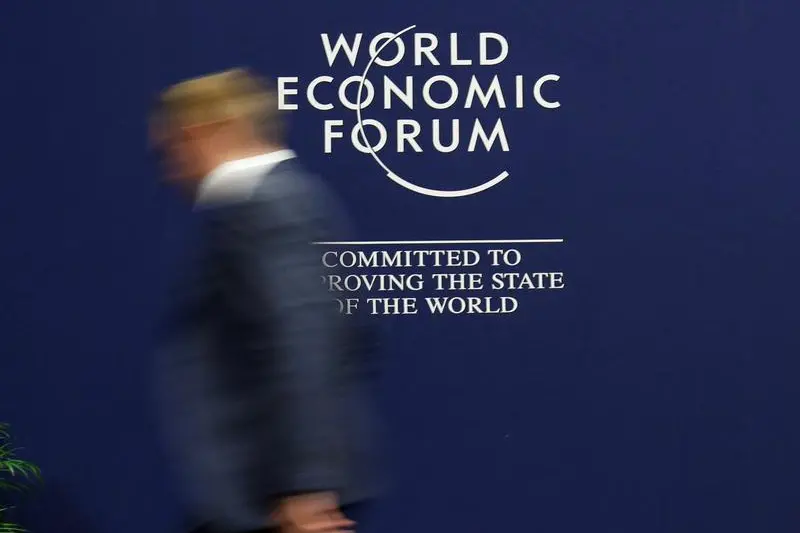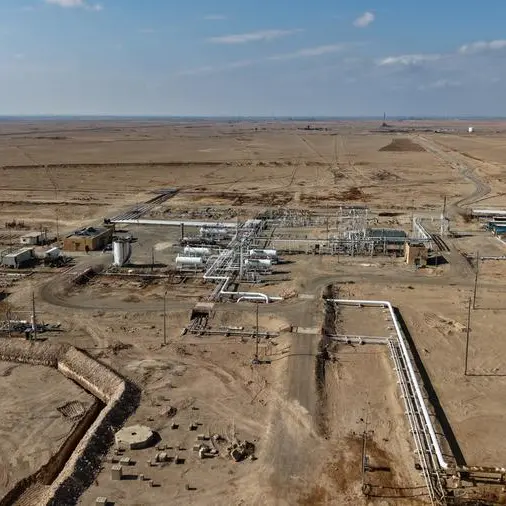PHOTO
Sunday, May 21, 2017
Change is needed to reduce the increase in income and wealth disparity and polarisation of societies that is feeding social instability and unemployment in many parts of the Arab world, according to the World Economic Forum. These underlying economic and social problems have been growing for many years but their potential to cause breakdown was brutally exposed during the chaos of revolutions of 2011 and the subsequent anarchy in some parts of the Arab world.
In a briefing on the new economic context for the Arab world, which the World Economic Forum presented at its Middle East meeting on the Dead Sea, it offered an overview of the dangerous pitfalls that need to be addressed before the Arab world will able to transform its economic and social picture. The most significant issues were the inefficient labour markets and insufficient levels of higher education and training throughout the Arab world but particularly in North Africa.
Speaking at a final session, Khaled Biyari, CEO of the giant Saudi Telecom Company, also spoke of the necessity of embracing profound change, which he said that the region’s governments are doing quicker that the private sector.
“We need a major change in the regulatory environment, and we also need the development of comprehensive infrastructure that can support change,” said Al Biyari as he referred to a recent incentive from the Saudi government to get telcos to introduce broadband across the country.
The issue of regulation was picked up by Philippe Le Houerou of International Finance Corp, an arm of the World Bank, when he commented that several young entrepreneurs he spoke to at the Dead Sea meeting pointed out that if they failed and went bankrupt they might easily go to jail. “This is a serious disincentive to innovation and necessary risk taking,” said Le Houerou.
“But such regulatory and legal change is only a start. The region needs more venture and angel capital, and more incubators and accelerators, so there is a whole ecosystem to support new ventures,” he said.
Unicorns
Abdullah Elyas, the founder of the disruptive Careem taxi service, pointed out that there was a common educational factor to many start-ups in the region. “New initiatives often come from local nationals who go abroad to get educated and maybe work there for a few years, before deciding to come back with the intention of making a change. A few years ago such people didn’t exist or they didn’t go into disruptive business. Now they can and the new technologies enable them to do so more easily,” said Elyas. “The success of Careem and the purchase of Souq.com by Amazon has given the Middle East two IT unicorns out of the 189 in the world. This ends the myth that they have to come from Silicon Valley.”
Arif Naqvi, Chief Executive of Abraj, spoke out strongly against the continuing grip that large private businesses in the region have on controlling access to markets. “They restrict change, and are still doing it, even if the entrepreneurs are breaking down their control,” he said.
The readiness to embrace the change suggested by these business leaders and innovators varies across the Arab world. The World Economic Forum’s briefing paper covered several factors like: competitiveness that allows better productivity, network readiness that shows how a country is ready to handle new technologies, enabling trade which looks at the ease of moving goods over borders, and the ease of doing business. The six GCC states all led the region in these categories, with the UAE heading the list, followed by Qatar and Saudi Arabia
But these states did not score well under the measurements of inclusive development which gauges broad-based and sustained progress in living standards, including wage and non-wage income as well as economic opportunity, security and quality of life. Jordan was the leading Arab state under this category followed by Morocco and Tunisia.
Diversification
The challenges identified for the Arab economies were transitioning away from reliance on natural resources and diversifying the economy, increasing the role of the private sector and diminishing the amount of state intervention in the economy, ensuring that opportunities are available for the millions of young people seeking work, mastering the implications of the Fourth Industrial Revolution and improving the ability of countries to encourage innovation.
The scale and importance of this challenge was outlined by Bassem Awadallah, CEO of Tomoh Advisory based in Dubai and a former head of the Royal Court in Jordan and who previously was a minister with successive portfolios of finance and planning. Writing in a briefing document for the Dead Sea meeting, he said “what is required is nothing short of a separate new revolution in the education system that matches the scale and pace of the Fourth Industrial Revolution itself.
“Government, policymakers educators and the private sector are required to come together to reimagine the entire process of learning, all the while challenging established “conventional” norms including the period it takes to graduate and topics that are taught, even at a basic level. For example should basic computing and coding become a mandatory subject and learnt along with basic reading and writing at elementary level?”
By Francis Matthew Editor at Large
Gulf News 2017. All rights reserved.





















